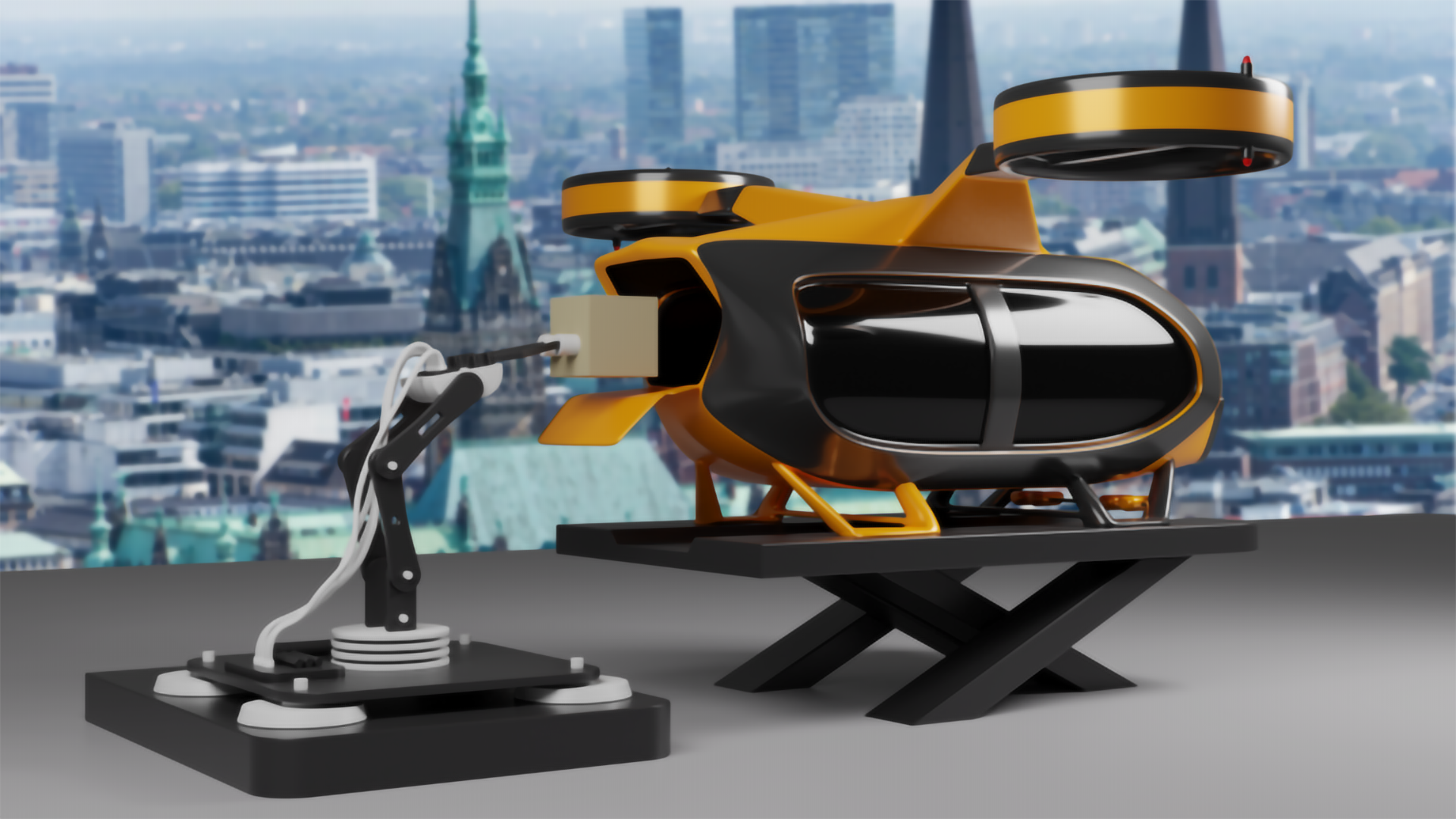i-LUM

Institute of Aircraft Production Engineering of the Hamburg University of Technology
Duration: November 2020 to October 2024
Urban Mobility of Tomorrow
The i-LUM project – Innovative Airborne Urban Mobility – brings together an interdisciplinary team of scientists to develop pioneering concepts and technologies for urban air transport, using the Hamburg metropolitan region as a model.
Funded by the State Research Funding Hamburg as part of the HamburgX initiative, the project investigates not only technological foundations but also societal, legal, and transport planning questions. The holistic approach aims to make innovative mobility solutions feasible by 2040/2050 and allow for their integration into existing infrastructures in a sustainable way.
A Look into the Future
The focus of the project is on developing sustainable, passenger-friendly, and environmentally compatible concepts for Urban Air Mobility (UAM). The goal is to create innovative solutions that reduce emissions while simultaneously providing seamless connections for users. This includes investigating new technologies such as flying taxis, as well as operational concepts, mobility structures, and business models. Future scenarios for the Hamburg metropolitan region in 2040/2050 serve as the basis for developing and assessing these concepts.
Scientific and Societal Value
The interdisciplinary collaboration of experts from technology, transport research, urban planning, law, and social sciences not only works on technological innovations but also takes into account societal acceptance, as well as legal and urban planning frameworks, while analysing the complex interactions between these areas. This enables the development of comprehensive solutions that contribute to the successful implementation of urban air mobility.
The i-LUM project supports Hamburg in its role as a pioneer for innovative mobility solutions. Furthermore, i-LUM can serve as a blueprint for the development of innovative mobility concepts in cities worldwide. The project thus contributes to the sustainable future of urban mobility.
For more information about the project, please visit the main project page of i-LUM.
The i-LUM (Innovative Airborne Urban Mobility) Project – Fundamental Research for the Urban Air Mobility of Tomorrow
- Duration: November 2020 bis October 2024
- Project funding: State Research Funding Hamburg as part of the HamburgX Initiative
- Involved partners and DLR institutes: Hamburg University of Technology, Helmut-Schmidt-University Hamburg, HafenCity University Hamburg, Hamburg University of Applied Sciences, Helmholtz-Zentrum Hereon; DLR Institute of Air Transport
- Lead: Hamburg University of Technology
Our Role in the Project
The DLR Institute of Air Transport was involved in evaluating the overall system for urban air mobility using a modular simulation chain for UAM through DLR’s own system integration software, RCE. This involved a comprehensive consideration of technical, economic, legal, and social factors. One key outcome of our work is the development of an IT infrastructure that promotes interdisciplinary collaboration between engineering, transport planning, urban planning, law, and social sciences, and can also be used for future collaboration between the Hamburg research partners.
Furthermore, we conducted fundamental work on the design of a vertiport network for electrically powered aircraft (eVTOLs). In doing so, we investigated the efficiency of respective transport networks and contributed to the capacity demand estimation for the maintenance of these vehicles.
